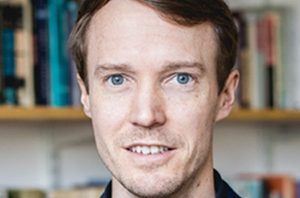 Dr Boram Lee, Dr Rohan Mukherjee, Dr Stephanie Schwartz and Dr Lauren Sukin joined the Department of International Relations as Assistant Professors in September 2022 Read our short interviews below, to get to know them better, and find out who their four dream dinner guests are….
Dr Boram Lee, Dr Rohan Mukherjee, Dr Stephanie Schwartz and Dr Lauren Sukin joined the Department of International Relations as Assistant Professors in September 2022 Read our short interviews below, to get to know them better, and find out who their four dream dinner guests are….
Dr Boram Lee
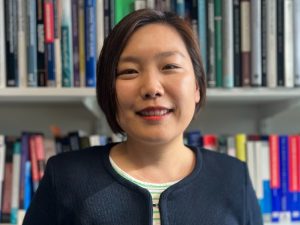
Find out more on Dr Lee’s profile webpage
Could you tell us a little bit about your professional background, and what you’ve enjoyed the most about your career so far?
I study international political economy, focusing on trade politics and international institutions. I received my doctoral degree in Government from Harvard University in 2020. Before joining LSE, I was a postdoctoral fellow at the University of Pennsylvania and taught at Wesleyan University as a visiting assistant professor.
Before I started my academic career, I worked in the private sector as a supply chain analyst. My job was to make sales forecasts for computer monitors. Although it is very important that people have good PC monitors at home, I find it more rewarding to interact with students during their formative years. It is a privilege to have the opportunity to shape people’s views on international politics.
What are you currently working on?
I am interested in understanding how governments design their trade agreements and how those design features affect compliance behaviour. In anarchy, trade is a powerful tool to make other countries do what they would not otherwise do. Many countries – especially the US and European countries – frequently use trade to spread their social and environmental standards among their trading partner countries. I am working on a book manuscript; it explains why governments want to link those value-based issues and how they make their commitment to issue linkage credible.
I am also studying why governments name-and-shame their home-grown multinational companies for violating global corporate norms abroad, even when those issues receive little attention from domestic audiences.
What about this work interests you, and what is its broader relevance?
I am fascinated by how people make their promises look credible ex-ante. It is even more difficult to make international commitments credible because most international agreements do not have direct enforcement mechanisms. If you won’t get punished for breaking a promise, why bother? I started most of my projects out of curiosity about why and how policymakers keep their promises even when they are unlikely to face any consequences for violating them.
What are you looking forward to, or currently enjoying, about working at LSE?
Over the last ten years, my identity as an international scholar has become a crucial pillar in my life. I enjoyed the great privilege of experiencing several academic communities in the US, Europe, and South Korea. At the same time, I experienced many unique challenges as an international scholar. I am excited about joining LSE for many reasons, but one of them is LSE’s welcoming communities for scholars with diverse backgrounds and experiences.
Who are your four dream dinner guests (living or dead)?
Cathy Park Hong, Yitang Zhang, Simone Biles, Nadiya Hussain
What do you get up to when you’re not working?
Plants, Cold brew, Meal prep vlogs
Dr Rohan Mukherjee
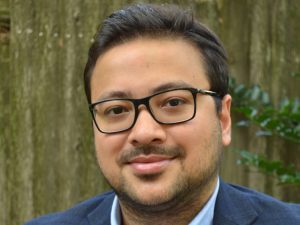
Find out more on Dr Mukherjee’s profile webpage
Could you tell us a little bit about your professional background, and what you’ve enjoyed the most about your career so far?
I work on rising powers and how they navigate the power and status hierarchies of international order, or the settled rules and arrangements that govern cooperation and conflict in international affairs. My regional focus is on the Asia-Pacific. Before joining LSE, I was an assistant professor at Yale-NUS College in Singapore. I received my PhD in Politics from Princeton University.
I’ve been lucky in my career to live in and deeply experience multiple cultures and intellectual traditions. I grew up in India, studied political science in the United States, worked in Singapore, and am now working in the UK. This experience adds valuable perspective to both my professional and personal lives.
What are you currently working on?
I am currently working on a project, with two other collaborators, that studies the origins and evolution of the strategic culture of the Indian military. We’ve collected thousands of pages of writings by British colonial and Indian military officers going back to the late 19th century and are using machine learning techniques to reveal underlying patterns in the way military thinking on questions of strategy has evolved over time.
What about this work interests you, and what is its broader relevance?
This work gets at a question that scholars have so far not answered convincingly, which is how strategic culture changes over time, especially in response to major historical breaks such as war and decolonisation. The work will hopefully be relevant in helping us understand the foundations of the Indian military’s worldview today, which in turn may help us better understand how India might act in terms of its overall foreign and military policies in future.
What are you looking forward to, or currently enjoying, about working at LSE?
LSE is at the crossroads of so many intellectual and cultural currents. It is very exciting to be here and interact with students and staff from diverse backgrounds who all share a desire to excel in their respective fields. The International Relations department is home to scholars doing foundational and cutting-edge research, and I consider myself fortunate to be able to play a small role in its research and teaching activities.
Who are your four dream dinner guests (living or dead)?
Nina Simone, Albert O. Hirschman, Vikram Seth, and Liu Cixin.
What do you get up to when you’re not working?
Work is what my spouse and I do when we are not serving as minions to two cats. We also love to cook and learn new recipes, and spend far too much time reading and following the news in the various countries we now think of as home.
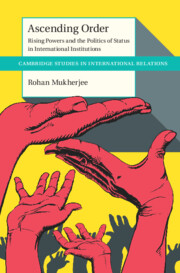 Read Dr Mukherjee’s latest book: Ascending Order: Rising Powers and the Politics of Status in International Institutions (Cambridge University Press, 2022)
Read Dr Mukherjee’s latest book: Ascending Order: Rising Powers and the Politics of Status in International Institutions (Cambridge University Press, 2022)
Dr Stephanie Schwartz
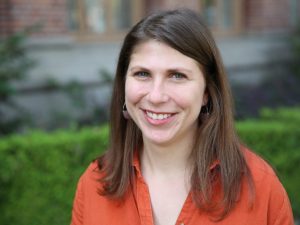
Find out more on Dr Schwartz’s profile webpage
Could you tell us a little bit about your professional background, and what you’ve enjoyed the most about your career so far?
In addition to my career in academia, I have worked with international policy organisations including the U.S. Institute of Peace, the World Bank, and the Sudd Institute. Whether as an academic or practitioner, I’ve most enjoyed getting to work on projects that can have a real world impact. I’m also lucky that through my career I’ve been able to travel to some amazing places and work with incredibly smart, talented and fun colleagues.
What are you currently working on?
My current book project examines how refugee return influences future patterns of conflict and displacement. Some of my other ongoing research looks at the role of refugee return in global asylum governance and the influence of COVID-19 on asylum norms.
What about this work interests you, and what is its broader relevance?
Migration affects most all our lives in some way or another. I strive to ensure that my research can inform and hopefully improve policies related to displacement and refuge.
What are you looking forward to, or currently enjoying, about working at LSE?
LSE is a hub for all kinds of interdisciplinary social science research, especially research with an eye to public policy. I’m very excited to be a part of that thriving community.
Who are your four dream dinner guests (living or dead)?
Samin Nosrat, M.I.A., Phoebe Waller-Bridge, Audre Lorde.
What do you get up to when you’re not working?
When I’m not working, I’m probably in the kitchen working on an elaborate baking project or out in the park with my rescue dog, Lasagne.
Dr Lauren Sukin
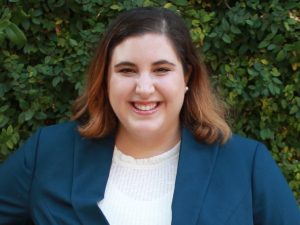
Find out more on Dr Sukin’s profile webpage
Could you tell us a little bit about your professional background, and what you’ve enjoyed the most about your career so far?
My work examines issues of international security, focusing particularly on nuclear weapons and alliance politics. I first became interested in nuclear politics as an undergraduate student at Brown University, and I began my research agenda in earnest during my doctoral studies at Stanford University’s Department of Political Science. I continued to pursue this line of research as a MacArthur Nuclear Security Fellow at the Center for International Security and Cooperation.
A career in academia provides many rewarding opportunities! I enjoy being able to pursue meaningful and interesting research questions, to learn from and alongside brilliant minds, and to help my students learn and grow.
What are you currently working on?
I am currently working on a book, which argues that credible nuclear guarantees can create fears of reliance on nuclear allies, leading to support within client states for stronger and more independent military capabilities. My broader research agenda also explores the dynamics of crisis politics, security challenges on the Korean Peninsula, cyber security, public opinion on the use of force, and other issues in international conflict.
What about this work interests you, and what is its broader relevance?
The invention of nuclear weapons represents a moment in history where everything changed. With my research, I hope to build towards a better understanding of how these immense weapons and the threat of their use continue to shape international politics, from the quality of alliances to the outcomes of crises.
What are you looking forward to, or currently enjoying, about working at LSE?
I am looking forward to working with a vibrant community of colleagues and students here at LSE. Everyone I have met at LSE has been intellectually curious, immensely accomplished, and fantastically engaging!
Who are your four dream dinner guests (living or dead)?
I would love to host a dinner party for Thomas Schelling, Robert Jervis, Daniel Kahneman, and Amos Tversky.
Schelling and Jervis are two of the best minds that have written about nuclear weapons, and each contributed significantly to our understanding of the behavioural elements of nuclear politics. Kahneman and Tversky are two of the best cognitive psychologists, whose work continues to inform behavioural research across numerous fields.
Since none of my esteemed guests can actually come, though, I will have to bake my dinner party go-to—a lemon and turmeric tea cake—for myself instead.
What do you get up to when you’re not working?
When I’m not working, you can most likely find me reading a novel or a poetry collection, unwisely expanding my sizable collection of politics-themed board games, or taking my miniature goldendoodle, Yoyo, on a long walk through a park!



